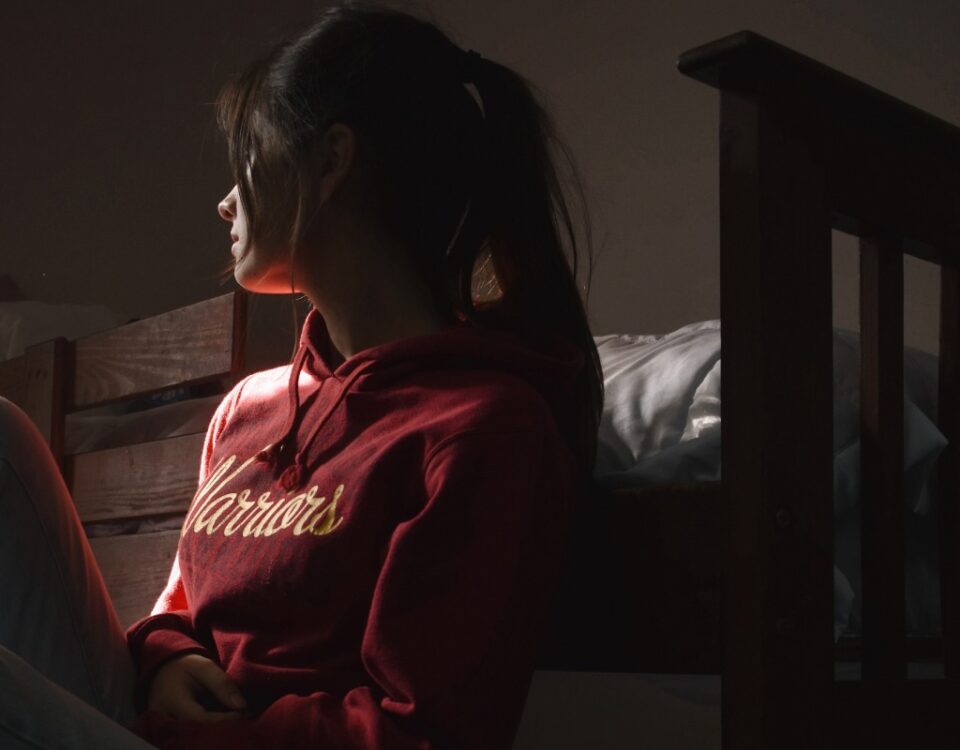How to Cope With COVID-19 Related Anxiety
February 5, 2022The Effects of Social Media on Self-Esteem
February 12, 2022Everyone experiences stress from time to time, but how they respond varies depending upon the individual. Some people may experience periodic anxiety, but not to the extent of an anxiety disorder. When an individual’s anxiety begins to affect everyday life, they may need to consider seeking treatment.
There are multiple types of anxiety disorders, and they can present themselves in different ways, so it is important to be able to identify signs and symptoms associated with each. Some forms of anxiety disorders include generalized anxiety disorder, social anxiety disorder, panic disorder, and obsessive-compulsive disorder. Identifying the problem is the first step towards seeking proper treatment.
Common Symptoms of Anxiety
Whether or not an individual knows they have an anxiety disorder, there are some common symptoms to look out for. Some examples include:
- Panic
- Restlessness
- Excessive worrying
- Irrational fears
- Racing thoughts
- Shortness of breath
- Shaking
- Trouble sleeping
- Stomach problems
- Picking at skin or nails
- Headaches
- Muscle tension
When experiencing any of these symptoms, one should consider talking with a doctor to determine if they need treatment for an anxiety disorder.
Identifying Generalized Anxiety Disorder
Someone who struggles with a generalized anxiety disorder (GAD) experiences persistent worrying on a daily basis. Their fears may not be connected to one specific cause or event. It is common for someone with GAD to blow things out of proportion or think that situations are worse than they really are.
They may find themselves frequently worrying about the future, always expecting the worst-case scenario, believing family and friends are mad at them when they are not, and constantly feeling on edge. This type of anxiety can impact an individual physically, resulting in difficulty sleeping, eating, or functioning. Other symptoms include nausea, diarrhea, or irritable bowel syndrome. This condition can make it challenging for an individual to perform at work or school.
Identifying Social Anxiety Disorder
While it is common to feel relatively nervous when meeting new people, giving a presentation, or going on a first date, a person with a social anxiety disorder feels this way at all times. People with this condition have an intense fear of embarrassing themselves in public or being criticized by others. They constantly worry about people judging them poorly or that others will notice they are on edge.
This anxiety can manifest itself in physical ways like blushing, sweating, upset stomach, dizziness, or losing train of thought. Many people with social anxiety will go to great lengths to avoid social interaction and intensely analyze how they performed after speaking with another person.
Identifying Panic Disorder
An individual struggling with a panic disorder will experience panic attacks that appear whenever and wherever without warning. In the midst of a panic attack, it is common to feel completely overwhelmed and not in control. During a panic attack, a person with panic disorder may even have an irrational fear that they are dying. Some physical side effects of a panic attack include:
- Tingling hands
- Shortness of breath
- Dizziness
- Stomach pain
- Chest pain
- Nausea
- Racing heart
- Breathing problems
Identifying Obsessive-Compulsive Disorder
Somebody with Obsessive-Compulsive Disorder (OCD) struggles with repetitive thoughts and urges throughout the day. They may struggle with certain obsessions like a fear of germs or illness, while others may feel an obsessive need for order and become anxious when things get messy. Many with this disorder feel compelled to perform various rituals like excessively cleaning their homes or repeatedly checking to ensure their doors are locked.
Seeking Treatment for an Anxiety Disorder
The way that anxiety is treated varies upon the type of disorder. When an individual wonders if they have an anxiety disorder, the first step is to speak with a primary care provider. They will be able to provide individuals with a diagnosis or refer them to a specialist who can.
In some cases, a patient can find relief through speaking to a therapist and learning how to better cope with their anxious thoughts. In other cases, prescription medication may be necessary for short-term management, while others may require long-term medication-based therapy.
When struggling from moderate to paralyzing anxiety, it is important to remember that this is not a battle that entails having to fight alone in silence. Undiagnosed and untreated anxiety can damage relationships and impair performance at school and work. There is help available for those who struggle with any form of anxiety. It is critical to seek help before turning to substances to cope, as that will only worsen one’s physical and mental health.
While it is normal to experience anxious thoughts from time to time, for many people, anxiety is a battle they deal with daily. It can affect their ability to perform at work or school, as well as their overall quality of life. Anxiety manifests itself differently in each person. However, there are some common symptoms to look out for, such as panic, irrational fears, shaking, and shortness of breath. There are various types of anxiety disorders, including generalized anxiety disorder, social anxiety disorder, panic disorder, and obsessive-compulsive disorder. Anxiety disorders are treated differently by people based on their diagnosis. Some people can experience relief by going to therapy, while others require prescription medication to combat their symptoms. If you are struggling with anxiety, our team at The Kimberly Center is here for you. We provide a number of therapy options that will meet your needs so that you can take back control. Call (855) 452-3683 today to learn more.



